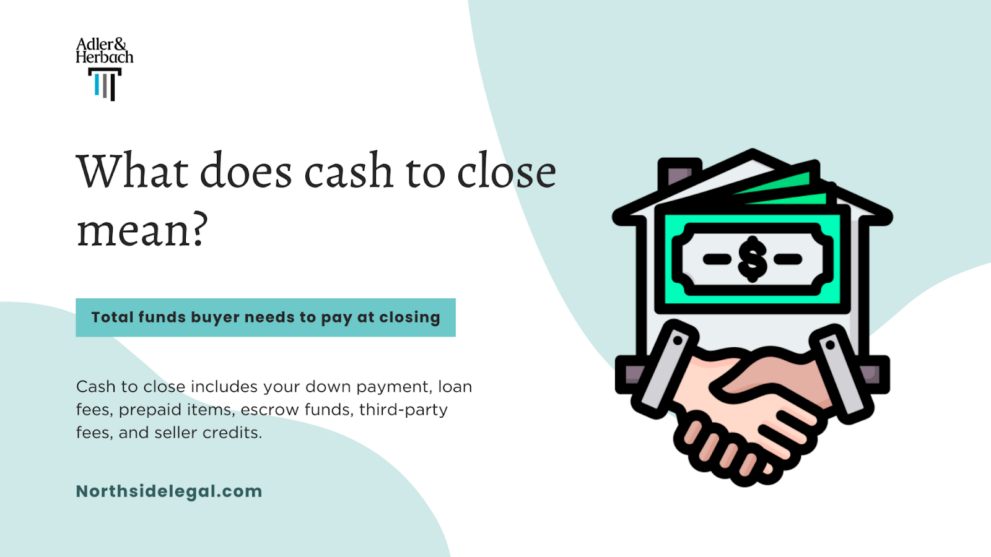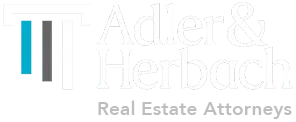If you find yourself in the midst of the home buying process and working to secure financing through a mortgage lender, chances are you’ll hear the term “cash to close” mentioned frequently by lenders, real estate professionals, and other parties involved in the transaction. But if you’re unfamiliar with the various financial terminologies used in real estate purchases, you may be wondering – what exactly does a buyer’s estimated cash to close mean and refer to when budgeting and preparing for closing on a home?
What does cash to close mean?
In simple terms, the cash to close means the total funds the buyer needs to provide at the time of a real estate closing to officially complete the purchase of the real estate property. This encompasses the down payment, all closing costs, prepayments, and any additional amounts required from the buyer at closing to finalize the purchase..

What does estimated cash to close mean?
“Estimated Cash to Close” is the total amount a home buyer needs to pay at closing. It’s computed by adding the down payment and all closing costs, then subtracting any credits from the seller or lender. This makes sure buyers are financially prepared for their new home purchase.
The lender will calculate the estimated cash to close amount early in the mortgage process to help the buyer understand their full upfront costs.
- They determine this by first calculating the down payment amount needed.
- Based on the specific mortgage loan program and type, a minimum percentage of the purchase is required as a down payment.
- The lender will start with the agreed-upon purchase price of the home and subtract the qualified loan amount to arrive at the required down payment.
- Next, the lender adds up all the estimated closing costs and fees that will be owed by the buyer, including points, loan origination fees, appraisal fees, title examination and insurance, escrow account funding, and a range of other items that vary by property.
- Then any credits being provided to the buyer by either the seller or lender are subtracted from the total, such as seller closing cost assistance or lender credits.
- The resulting sum of down payment plus net closing costs equals the buyer’s full estimated cash to close figure.
As a buyer, you should have a reliable estimate of the final cash to close amount from the lender, which you need to pay on closing day.
Save enough funds to cover it to avoid budget shortfalls and ensure you’re fully prepared financially to close on time without delays or hiccups.
Not having all the funds needed on the scheduled closing date can postpone the process at best, or at worst, derail the transaction entirely.
What does Cash to close include?
Some of the major items that may factor into a buyer’s cash to close amount include:
- The down payment amount – This varies based on the specific mortgage loan program. Conventional loans may require 20% down to get the best rate, while FHA loans need only 3.5% as a down payment.
- Loan origination and application fees charged by the lender to obtain the mortgage, including points, processing fees, underwriting fees, and more.
- Third party fees for services like the property appraisal, credit report, flood zone certification, and any others.
- Title insurance policy premiums and title examination and settlement services charged by the title company.
- Prepaid property taxes and homeowners insurance which need to be paid at closing.
- Any mandatory homeowner’s association funding or fees if the property is in an HOA or condominium.
- Initial prorated payments to establish the escrow impound account for future bills the lender will pay, like insurance premiums and property taxes.
- Credits offered by the seller and/or lenderr toward the buyer’s closing costs will offset some of these expenses and reduce the cash to close amount
- Earnest Money deposited by the borrower when the contract was signed will be credited at closing, reducing the final cash to close amount.
Having the full detailed estimate from the lender on what goes into the total cash to close amount, and confirming this again shortly before closing, enables buyers to confidently save, gather, and prepare the exact funds needed for their down payment, closing obligations, prepayments, and other costs.
Underestimating any component of the total can derail an otherwise on-track home purchase.


